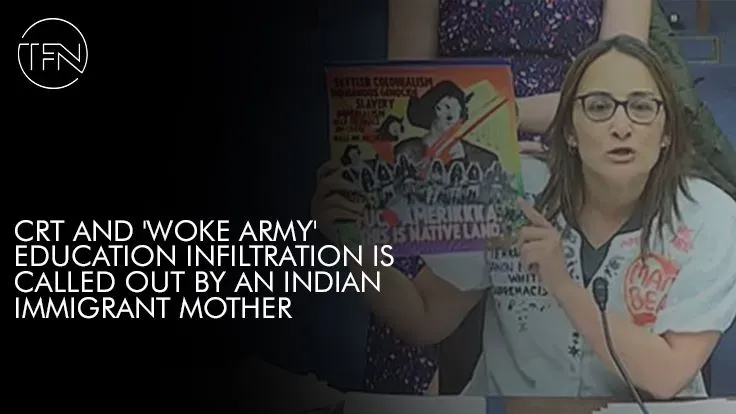A mother and former Georgetown University professor criticized the "woke army" for entering US classrooms with texts that accuse the country of racism.
Asra Nomani spoke before Congress on Tuesday about how she has come under attack by activists as a result of her worries about textbooks promoting critical race theory, which she said pose a "threat to democracy."
Nomani, who was born in India and came to the US as a youngster, said that because of her ideas, she has been dubbed "the face of white supremacy." She told the House Oversight Committee that schools should put more emphasis on arithmetic and reading than on spreading a "divisive ideology."
According to the idea known as "critical race theory," racism is a social construct that has been ingrained in American law and policy frameworks.
Her comments were made amid congressional hearings on white supremacy, which some claim is to blame for the rise in violence against LGBT Americans.
She was the sole witness at the hearing who had been invited by the Republicans on the House Oversight Committee, according to Nomani, a former Wall Street Journal reporter who announced on Twitter.
"I wasn't afraid. My position is that the Woke Army's new hierarchy of human worth should not take the place of the previous one.
Nomani opened her evidence by describing her upbringing as an immigrant in the US.
“I immigrated to America when I was four years old. I was born in Morgantown, West Virginia, an overwhelmingly white state, and I migrated to the wonderful state of New Jersey.”
She said, “despite having a different skin tone, I was confirmed, I was encouraged, and I was able to grow up a girl who knew not a word of English when I came to become a reporter for the Wall Street Journal."
Still, she said, "I'm supposed to be the face of white supremacy sitting here in front of you today," pointing out that some "woke" activists had called her names because she didn't agree with critical race theory.
The idea is criticized for dividing individuals into two groups depending on their skin color: the "oppressed" and the "oppressors."
However, proponents argue that the theory is essential to ending racism since it looks at how race affects American politics, society, and the law.
As her father was growing up in India, Nomani spoke about how the British emperors "actually channeled food away from the peasants," she said.
He eventually became a young man who immigrated to the United States of America because he shared its ideals and ideas.
The former professor then revealed before the House Oversight Committee that she was sporting a white shirt that her father had created that was modeled after Alexandria Ocasio-famed Cortez's Tax the Rich garment.
“We, parents in the United States of America, have allegedly been referred to as "domestic terrorists," "white supremacists," and "QAnon mums," among other things,” she noted.
"What have we parents in the United States of America dared to stand up against?" This book, "Not My Idea: A Book About Whiteness," is an example of the divisive ideology known as Critical Race Theory that is transferred into our educational institutions,” she continued.
She also said, "Books like these are the trickle-down impact of the dehumanization of any human being due to their race," before displaying a page that displays "a new hierarchy of human worth."
'An ideology of activists who are moving into America's school districts and our neighborhoods and what they are doing is a danger to democracy,' Nomani said of critical race theory. According to the National Assessment of Educational Progress, which was released in October, math scores nationwide witnessed their biggest drops ever, reading scores fell to levels last seen in 1992, and almost four in ten eighth graders struggled to understand fundamental arithmetic concepts.
Nomani's testimony was given on the same day that Rep. Nancy Mace condemned a transgender activist for using ominous language in a tweet calling for the justices of the Supreme Court to be "accosted" and "never know peace again."
At the hearing, Mace questioned the witnesses on whether they saw violence-inspiring language as a danger to democracy. Those named were Justices Clarence Thomas, Samuel Alito, Brett Kavanaugh, Neil Gorsuch, and Amy Coney Barrett.
Rep. Vicki Mace described being "accosted" by a constituent who referred to the Supreme Court as "illegitimate" and an "instrument of the extreme right" and queried if she thought the justices should be harassed.
Mace said that a highly armed 26-year-old man was apprehended in June close to Justice Brett Kavanaugh's residence and confessed to investigators that he intended to murder the conservative justice first, then commit himself.

